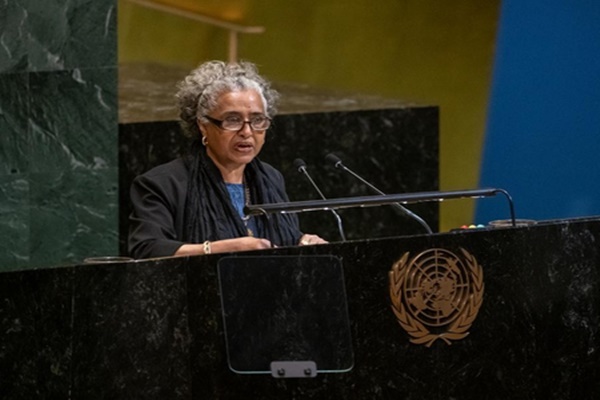
A Landmark Resolution for Global Solidarity
On June 16, 2025, the United Nations General Assembly adopted a significant resolution proclaiming December 4 as the International Day Against Unilateral Coercive Measures (UCMs). This move underscores the global commitment to uphold international law and the principles enshrined in the UN Charter. The resolution calls for the cessation of unilateral economic, financial, or trade measures that are not authorized by the United Nations and that impede the full achievement of economic and social development, particularly in developing countries.
The adoption of this resolution reflects a growing consensus among UN member states about the detrimental impact of UCMs on global peace, development, and human rights. It emphasizes the need for multilateral approaches to address international challenges and promote cooperation among nations.
The Humanitarian Impact of Unilateral Coercive Measures
UCMs, often imposed by individual countries without UN authorization, have been criticized for their adverse effects on the populations of targeted nations. These measures can lead to shortages of essential goods and services, such as food, medicine, and clean water, thereby exacerbating humanitarian crises. Vulnerable groups, including women, children, and the elderly, are particularly affected by these sanctions.
The resolution highlights the importance of considering the humanitarian consequences of UCMs and urges member states to refrain from adopting measures that violate the rights of individuals and hinder the development prospects of nations. It calls for increased international cooperation to mitigate the negative impacts of such measures and to support affected countries in their development efforts.
Global Support and Opposition
The resolution was adopted with 116 votes in favour, 51 against, and 6 abstentions. The majority of countries, particularly from the Global South, supported the resolution, viewing it as a step towards ensuring equitable development and respect for sovereignty. These nations argue that UCMs often serve as tools of political and economic pressure, undermining the principles of non-interference and equal sovereignty among states.
Conversely, several countries from the Global North, including members of the European Union, the United States, Canada, Japan, and Australia, voted against the resolution. These nations contend that UCMs are necessary to address threats to international peace and security and to promote human rights in regimes deemed authoritarian or repressive. They argue that such measures are often accompanied by humanitarian exceptions and are implemented to encourage positive change in targeted countries.
The Role of the United Nations in Promoting Multilateralism
The declaration of December 4 as the International Day Against UCMs serves as a reminder of the UN’s role in promoting multilateralism and adherence to international law. The resolution requests the UN Secretary-General to take necessary measures to commemorate and promote the International Day, including organizing an annual informal plenary meeting of the General Assembly to raise awareness about the negative impacts of UCMs.
This initiative aligns with the broader goals of the United Nations to foster international cooperation, peace, and sustainable development. It underscores the importance of dialogue and mutual respect among nations in addressing global challenges and promoting the well-being of all people.
Looking Ahead: The Future of Unilateral Coercive Measures
The adoption of this resolution marks a significant step in the ongoing debate over the legitimacy and effectiveness of UCMs. It reflects a shift towards prioritizing human rights and development over unilateral actions that may have unintended negative consequences. The International Day Against UCMs provides an opportunity for countries to reflect on the impact of their policies and to commit to approaches that promote peace, justice, and cooperation.
As the international community continues to grapple with complex global issues, the resolution serves as a call to action for all nations to work together in a spirit of solidarity and mutual respect. It highlights the need for policies that are inclusive, equitable, and grounded in the principles of international law, ensuring that the rights and dignity of all individuals are upheld.
In conclusion, the declaration of December 4 as the International Day Against Unilateral Coercive Measures is a significant development in the pursuit of a more just and cooperative world order. It reflects the collective will of the international community to address the challenges posed by unilateral actions and to promote a multilateral approach to global governance that respects the rights and sovereignty of all nations.




































Leave a Reply